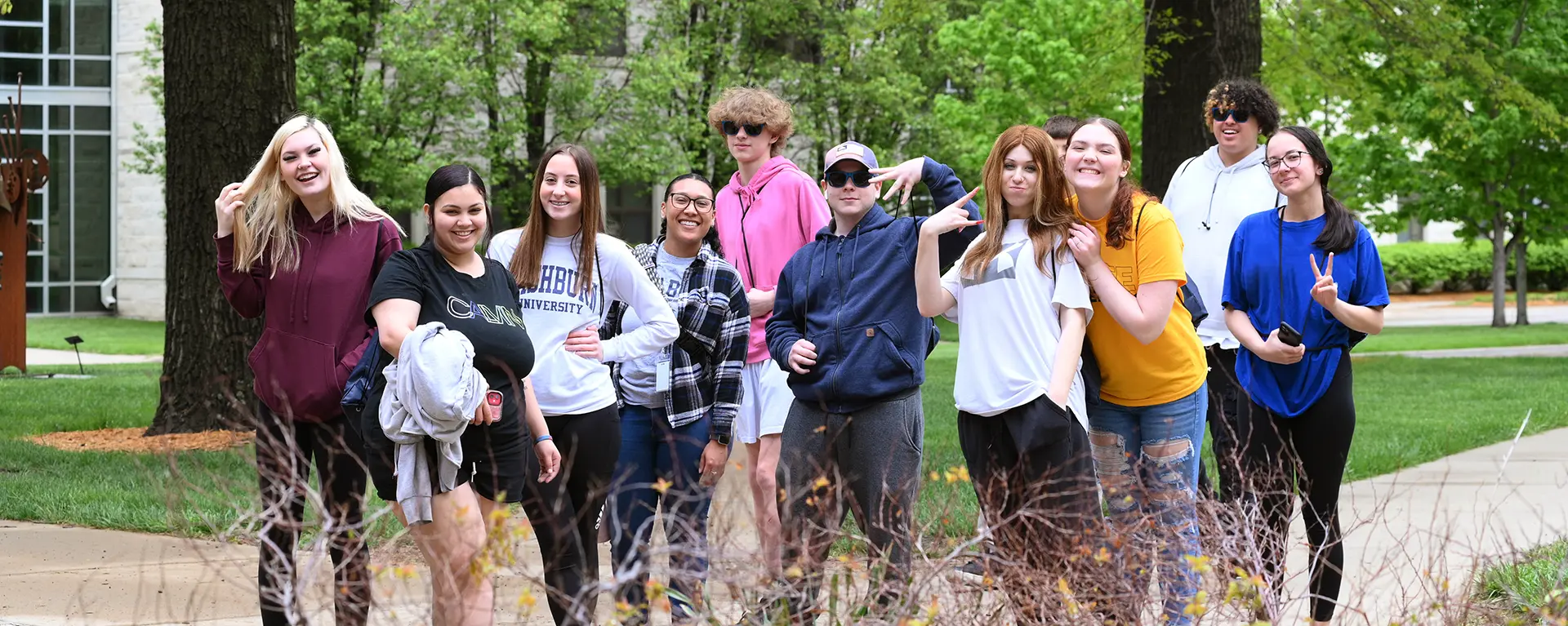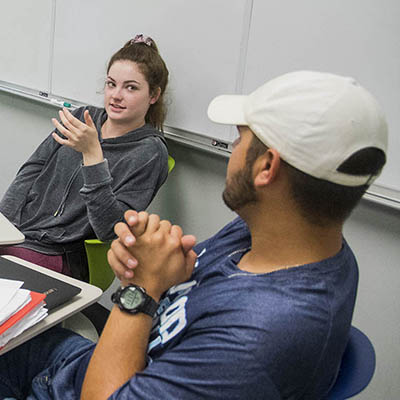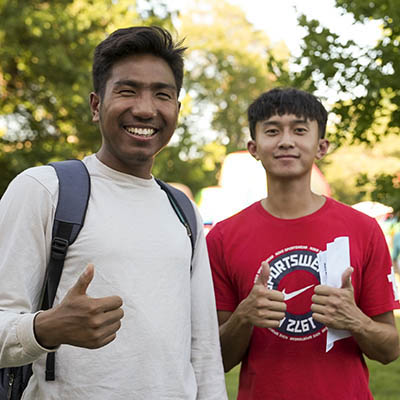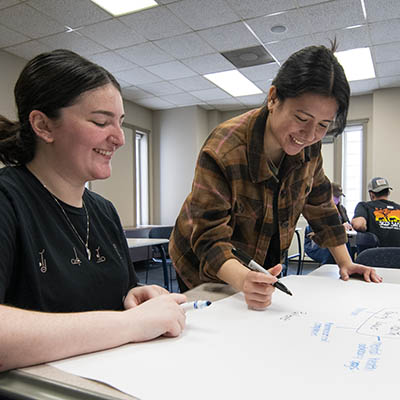
TEXTS is Transformative, EXperiential and Team-Taught Studies
Explore big, timely and timeless problems and questions of humankind in the interdisciplinary Great TEXTS minor or certificate program. You will immerse yourself in transformative books, films, artwork, music, performances and travel. Next you will share your insights and learn from others through discussion, presentations and other assignments. Students in all majors and degree programs may enroll in Great TEXTS, and all courses and books are provided at no cost to you, through a generous donor.

Team-Taught, Small Classes
Each Great TEXTS course is a small, discussion-based class taught by two faculty members. Each course includes unique opportunities to pursue knowledge including travel to historic and cultural sites and engagement with the community.

No Cost to Students
- Every student accepted to the program receives a scholarship for each Great TEXTS course.
- The books for every Great TEXTS course are provided at no cost to students.

Learning Outcomes
Students who complete the certificate program will be able to:
- Engage critically with transformative texts, drawing on multiple perspectives, to reflect on one’s position in the world.
- Analyze major intellectual ideas, human institutions and human behavior as expressed in transformative texts from Western and non-Western traditions.
- Apply interdisciplinary methods and theories from the liberal arts to current challenges facing individuals, communities and societies.
Program Details
Students must have five semesters left at Washburn to be eligible to complete the 9 hour certificate or 15 credit hour minor.
Required Courses
- TX 100
- TX 200
- TX 300
- TX 301
- TX 400

